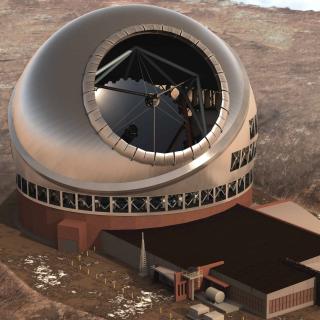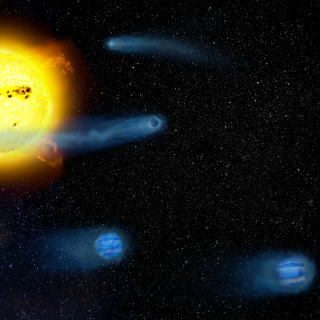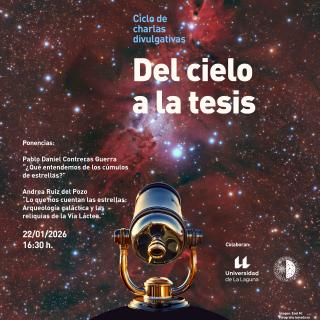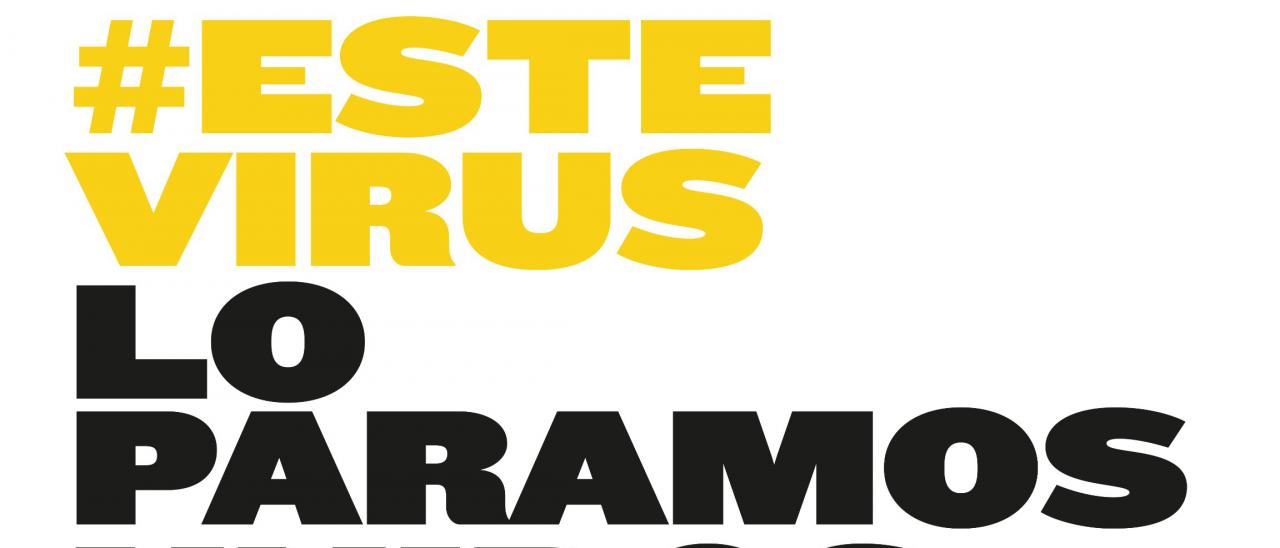It may interest you
-
 Statement supporting the selection of La Palma for the Thirty Meter Telescope (TMT) site: The Comité Científico Internacional (CCI) of the Canary Islands Observatories enthusiastically welcomes the possibility that the Thirty Meter Telescope (TMT) may ultimately choose the Observatorio del Roque de los Muchachos (ORM) on La Palma as its site. The ORM offers outstanding astronomical conditions, decades of successful international cooperation in operating telescopes, and a robust legal framework protecting its dark skies. At its meeting on 27 November 2025 on the island of La Palma, the CCIAdvertised on
Statement supporting the selection of La Palma for the Thirty Meter Telescope (TMT) site: The Comité Científico Internacional (CCI) of the Canary Islands Observatories enthusiastically welcomes the possibility that the Thirty Meter Telescope (TMT) may ultimately choose the Observatorio del Roque de los Muchachos (ORM) on La Palma as its site. The ORM offers outstanding astronomical conditions, decades of successful international cooperation in operating telescopes, and a robust legal framework protecting its dark skies. At its meeting on 27 November 2025 on the island of La Palma, the CCIAdvertised on -
 One of the biggest recent surprises in astronomy is the discovery that most stars like the Sun harbor a planet between the size of Earth and Neptune within the orbit of Mercury — sizes and orbits absent from our solar system. These ‘ super-Earths' and ` sub-Neptunes’ are the galaxy's most common planets, but their formation has been shrouded in mystery. Now, an international team of astronomers has found a crucial missing link. By weighing four newborn planets in the V1298 Tau system, they've captured a rare snapshot of worlds in the process of transforming into the galaxy's most commonAdvertised on
One of the biggest recent surprises in astronomy is the discovery that most stars like the Sun harbor a planet between the size of Earth and Neptune within the orbit of Mercury — sizes and orbits absent from our solar system. These ‘ super-Earths' and ` sub-Neptunes’ are the galaxy's most common planets, but their formation has been shrouded in mystery. Now, an international team of astronomers has found a crucial missing link. By weighing four newborn planets in the V1298 Tau system, they've captured a rare snapshot of worlds in the process of transforming into the galaxy's most commonAdvertised on -
 El ciclo de charlas divulgativas Del Cielo a la Tesis, impulsado por el estudiantado predoctoral del Instituto de Astrofísica de Canarias (IAC) y la Universidad de La Laguna (ULL) para acercar la investigación en astrofísica a la ciudadanía, celebrará una nueva sesión el próximo 22 de enero de 2026 a las 16:30 horas en el Museo de la Ciencia y el Cosmos, del Organismo Autónomo de Museos y Centros del Cabildo de Tenerife. En esta ocasión, la cita propone un viaje al pasado de nuestra galaxia a través de dos ponencias que abordan cómo se forman y evolucionan los cúmulos de estrellas y cómo lasAdvertised on
El ciclo de charlas divulgativas Del Cielo a la Tesis, impulsado por el estudiantado predoctoral del Instituto de Astrofísica de Canarias (IAC) y la Universidad de La Laguna (ULL) para acercar la investigación en astrofísica a la ciudadanía, celebrará una nueva sesión el próximo 22 de enero de 2026 a las 16:30 horas en el Museo de la Ciencia y el Cosmos, del Organismo Autónomo de Museos y Centros del Cabildo de Tenerife. En esta ocasión, la cita propone un viaje al pasado de nuestra galaxia a través de dos ponencias que abordan cómo se forman y evolucionan los cúmulos de estrellas y cómo lasAdvertised on
